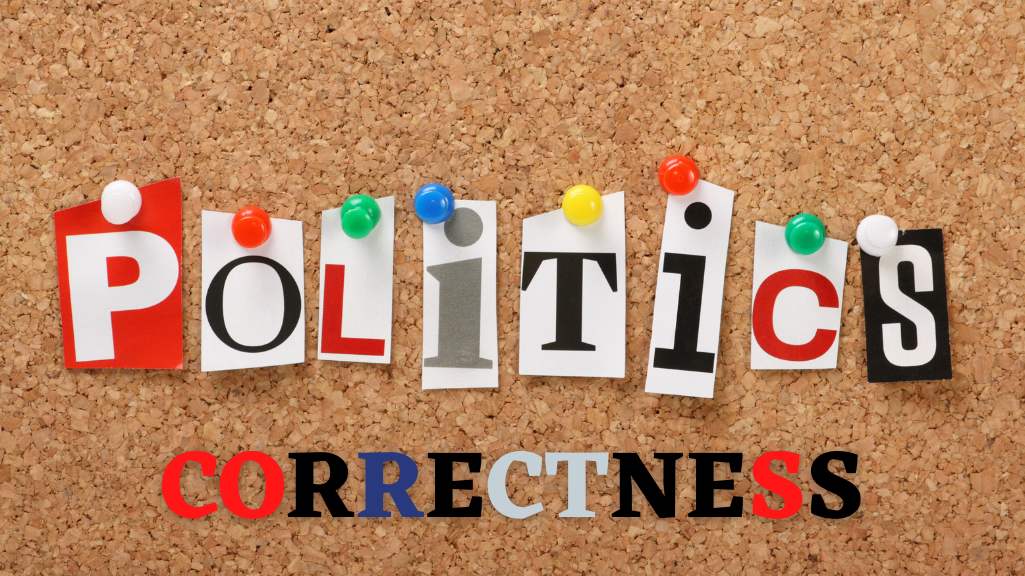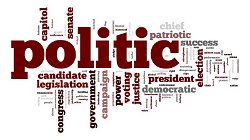The Importance of Political Correctness in Everyday Life
Vikash Jain
. 3 min read
The concept of political correctness was developed to assist us in employing language that is constructive as opposed to destructive. Avoiding language and actions that insult, exclude, or otherwise harm people who are already experiencing disadvantage and discrimination is what we mean when we talk about "political correctness." Being politically correct helps all of our future generations, which are the youth, to have an open mind about accepting and treating others without discrimination and refraining from using offensive words to describe the differences between themselves and other people.

A few examples of politically correct behavior in everyday life include the following
Instead of asking a person about their "girlfriend" or "boyfriend" or their "husband" or "wife," you should ask them about their "partner." It is possible that you will decide to do this in order to avoid assuming the individual's sexual orientation or gender, or even that they have made the decision to be married. Instead of asking someone where they are from, you can inquire about their cultural or ethnic background by asking them what they are from.
There have been laws passed with the intention of promoting political correctness
However, there are examples of laws that were written with the intention of being politically correct. The so-called Oklahoma Racial Mascots Act, which was proposed in 2005 as Senate Bill 567 in the state of Oklahoma, would have outlawed "the use of racially derogatory or discriminatory Native American school or athletic team names."
Concerning matters of Ethnicity and Race, Political Correctness
Let's say I'm trying to describe a person. If I refer to a person as "a Chinese," it is commonly believed that I am insinuating that he is one of the many migrants. By doing so, I am generalizing all of the individuals who have those origins and removing merit from their individual circumstances in the present day. On the other hand, if I describe the origin of a person by saying that they are "Chinese," then this is considered to be politically correct language.
The importance of being Politically Correct in Business
Deals can be made or broken depending on how well one navigates the murky waters of what is politically correct and what is not when working in multicultural environments or with multiethnic customers.
The Arguments in Favor of Political Correctness
The advocates of politically correct language have asserted that its use by the vast majority of society, including entertainment outlets such as parks, restaurants, and venues, as well as in schools and workplaces, has unquestionably brought about a heightened awareness of the importance of ensuring that all citizens feel included and respected. PC has established clear rules regarding what is acceptable and what is not, and it continues to do so.
The Psychological Advantages of Political Correctness
One of the reasons politically correct beliefs have been so successful is because they offer certain psychological advantages. Elites have the ability to present themselves as morally superior and further cement their influence in society by advocating for the rightness of mainstream narratives. The term "psychic rent-seeking" was coined by economist Jennifer Roback to describe this phenomenon and this protectionism can undermine institutional authority.
The Harmful Impact of Insensitive Comedy: The Example of Dave Chappelle and Transgender Representation
Dave Chappelle is a good example of a comedian who crossed the line when it comes to political correctness. Chappelle's insensitive comments about transgender people serving in the military perpetuated several misconceptions about transgender people, which prompted outrage. When content that is on the verge of being hateful and completely insensitive is routinely broadcast in the name of comedy, it paves the way for stereotypes about marginalized people that are false and harmful to be formed in the minds of those who consume comedy.
The Importance of Political Correctness in Facilitating Effective Communication and Promoting Inclusivity
In addition to having an effect on society and the community as a whole, political correctness has an effect by facilitating more effective communication between individuals. This, in turn, helps to cultivate an environment in which all members of society are able to feel at ease, and in which they are free to discuss and openly express their ideas and opinions without fear of being judged for holding viewpoints that One of the many ways in which the community and society as a whole can be improved is by adopting a language that is free of discriminatory connotations.
More Stories from
India's New Parliament Bhavan: An Icon of Modernity and Functionality
The New Parliament Bhavan is a cutting-edge architectural marvel in New Delhi, India, serving as the modernized hub of the nation's democracy.
Child Marriage: A Global Challenge to Childhood Rights and Development
This article sheds light on the pervasive issue of child marriage, where millions of young girls and boys are married off before the age of 18.
Mastering Social Etiquette: Essential Tips for Polished Social Skills
It emphasizes the importance of being knowledgeable about social etiquette and paying attention to subtleties to avoid awkward situations.
Power and Pitfalls of Celebrity Endorsements in Politics
The article explores the role of celebrities in politics, focusing on their influence in India and Pakistan.






.png?width=40&aspect_ratio=1:1)




.png?width=40&aspect_ratio=1:1)